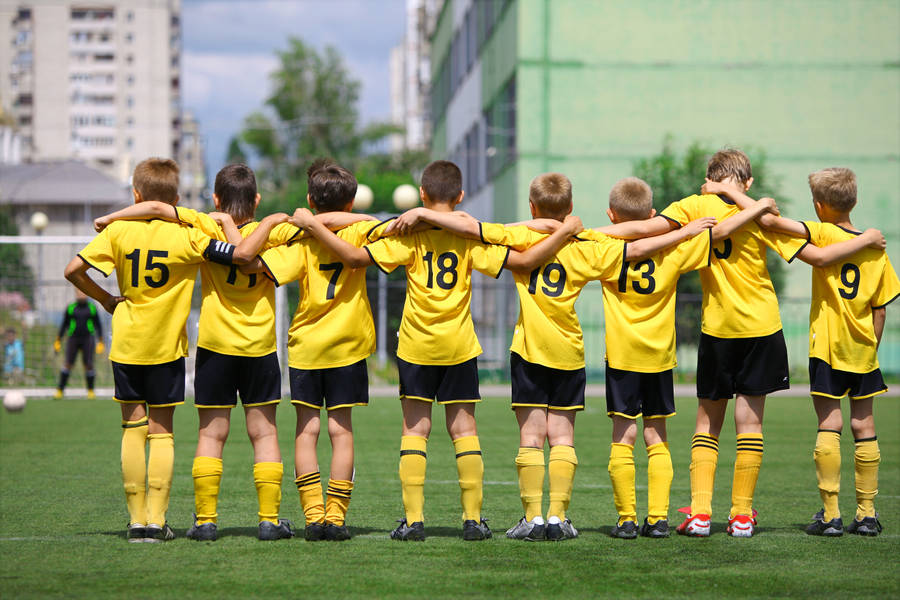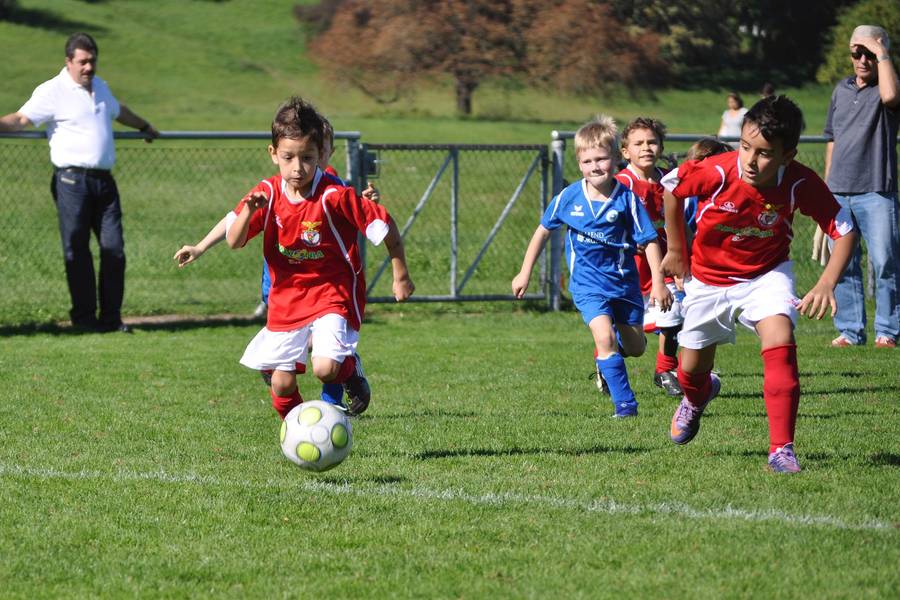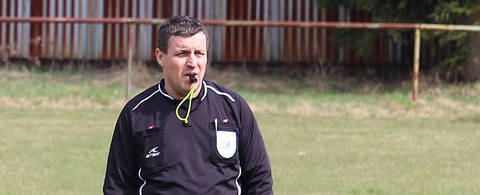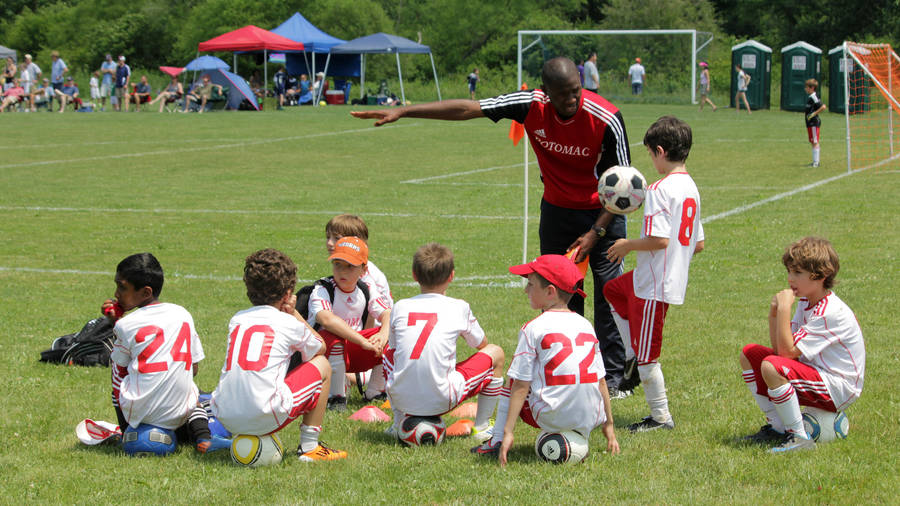
Grassroots football plays a crucial role in shaping young players, not just in terms of their technical skills, but also in developing their mental resilience. In every match, in every training session and in just about every moment of competition, young players are confronted with challenges that test their ability to persevere, adapt and overcome. We know football is a game of highs and lows and grassroots football provides a safe but demanding environment in which players can experience setbacks, learn from them and become stronger people. The lessons learned on the pitch often extend far beyond football, equipping players with the ability to handle adversity in all areas of life.
One of the earliest challenges a young player faces in grassroots football is dealing with losing. No matter how talented a team is defeats are inevitable and how a player processes and reacts to them is key to their development. The disappointment of a loss can feel overwhelming, particularly for young players who invest so much effort into their performances. However, grassroots football should be an environment where losing is not seen as failure but an opportunity for growth. Coaches encourage players to reflect on what went wrong, what could be improved and how to approach the next challenge differently. Through this process, players learn to accept setbacks as part of the game and, more importantly, as part of life. The ability to pick oneself up after a defeat, maintain self- belief and strive to improve is a hallmark of resilience that extends far beyond football.
Resilience is also built through the demands of training and the continuous effort required to develop skills. Mastering new techniques, improving fitness and understanding tactical play takes time and perseverance. Young players quickly realise that improvement does not happen overnight and that consistent effort is required to progress. This teaches them the value of hard work, discipline and patience, qualities that are essential in both sport and life. Whether it's struggling to perfect a pass with either foot, failing to score a penalty or finding it difficult to track an opponent, each small challenge presents an opportunity to develop resilience. The ability to persist in the face of frustration and maintain a positive attitude is a fundamental part of a player's mental growth.
‘Missing out’ is another unavoidable aspect of football and can be one of the toughest challenges a young player faces. Being sidelined can feel devastating, particularly when a player has been enjoying their football. Whether it’s through injury, rotation or through non-selection, missing out teaches important lessons in patience, determination, and perserverence. Many young players recover from these setbacks with a renewed appreciation for the game and an even stronger desire to succeed. Coaches and teammates play an essential role in this process, offering support and encouragement that reinforces the idea that setbacks are temporary and can be managed with the right approach.
Pressure is another significant factor that contributes to resilience in grassroots football. Whether it's taking a decisive penalty, defending a slender lead or dealing with the expectations of teammates and parents, young players frequently encounter high pressure situations. Learning to manage nerves and perform under pressure is a vital skill, not just for football but for many aspects of life. The ability to stay composed, focus on the task at hand and not be overwhelmed by the magnitude of a moment is something that grassroots football instils from an early age. This ability to handle pressure will serve players well in future careers, exams and other high pressure scenarios.
Beyond the individual challenges, grassroots football also teaches resilience through teamwork.
Playing in a team means dealing with different personalities, opinions and approaches to the game.
Disagreements are inevitable, whether over tactics, playing time or the outcome of a match.
Learning to navigate these dynamics, resolve conflicts and work together towards a common goal is a valuable life skill. Being part of a team also teaches players to support one another during difficult times, whether it's encouraging a teammate after a mistake or rallying together after a tough loss.
The sense of unity and shared responsibility strengthens a player’s ability to handle difficulties both on and off the pitch.
The role of coaches in building resilience can’t be overstated. A good coach does not simply focus on results but emphasises the importance of effort, improvement and learning from mistakes. They set challenges for players, pushing them out of their comfort zones while offering guidance and encouragement. They reinforce the message that setbacks are not failures but stepping stones to success. By developing a positive and demanding environment, coaches ensure that players develop not just as footballers but as resilient individuals who can tackle adversity with confidence.
Parents also play an important role in supporting resilience in young players. Encouragement should focus on effort rather than just results, reinforcing the idea that persistence and hard work are more important than winning alone. Teaching children to view mistakes as opportunities for learning rather than as failures helps them develop a growth mindset, which is essential for resilience. The way parents react to a child's disappointment whether from losing a game, making a mistake or being substituted, can shape how the child processes setbacks. A balanced approach that acknowledges their emotions while encouraging them to keep going helps develop a stronger, more resilient mindset.
Grassroots football also exposes players to the reality that life is not always fair. Sometimes a referee makes a mistake, an opponent cheats or a player is left out of the starting line up despite working hard. These experiences, while frustrating, prepare players for the realities of life, where things do not always go as planned. Learning to control what they can, attitude, effort and response, instead of dwelling on what they cannot change is a key element of resilience. Understanding that unfairness is part of life but that perseverance and determination can still lead to success is a valuable forever lesson.
The ability to handle setbacks, persist through difficulties and maintain self belief is crucial in education, careers, relationships and personal growth. Many former grassroots footballers carry these lessons into adulthood, drawing on their experiences of overcoming challenges in football to navigate life's difficulties. The discipline, patience and mental toughness developed through football are qualities that remain valuable long after a player has stopped playing the game.
Football is a sport of constant challenges and grassroots football provides an important environment where young players can learn to embrace adversity rather than fear it. The game teaches them that mistakes are part of the journey, that hard work leads to progress and that resilience is built through experience. Every missed goal, every tough defeat and every training session filled with struggles contributes to the development of a stronger, more resilient individual. These qualities, cultivated in the grassroots football environment, prepare young players not just for future sporting success but for the many challenges life will inevitably present. The ability to keep going, to learn from setbacks, and to believe in yourself is perhaps the greatest gift that grassroots football can offer.


















